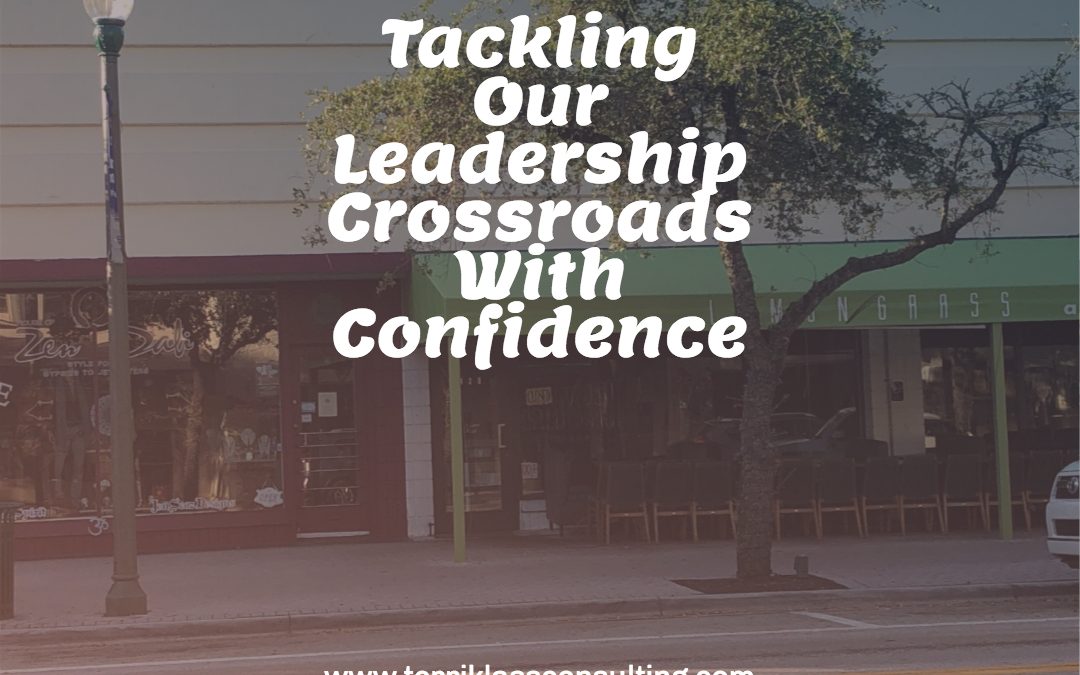This past week I presented a program on Planning For Your Second Act with a group of extraordinary seasoned leaders. As often happens with this workshop, participants attend wondering why they would need to be so structured in their thinking about their next steps. Some of the initial conversations and comments were:
“I am tired of planning out my life. I am going to wing it.”
“I am a bit scared about my next steps but I will figure it out.”
“I am ready to just go with the flow and see where that takes me.”
No matter what stage a leader may be in during their career, they know that change is a constant. What that means is that with such a great deal of flux there is always a need to prepare for our next move. Time invested in anticipating their next possible career and life choices will help a leader make the best decisions.
[Tweet “With change as a constant, leaders must be prepared for their next crossroad.”]
Here are five actions leaders take to plan for their next crossroad:
1. Assess The Stability Of Your Current Position
Whether you are a seasoned or an emerging leader, it is essential to take a hard look at how sustainable your current job may be. In your analysis consider the value of your tasks and assignments and try to project what the future may hold. Sometimes our work situations may change due to economic factors or an alternative direction that our organization is following. Being aware of how our team or department is valued can help us decide whether we need to take some immediate action.
2. Take Stock Of Your Strengths
Emerging leaders, middle management and seasoned leaders should all have a good understanding of the areas they excel. Studies have shown that it is far better to play to our strengths than constantly try to upgrade our weaknesses. To locate your talents:
- Reflect on what projects you have been asked to be involved
- Ask a colleague or boss what they most value about your contributions
- Think about what brings you joy and makes you feel competent
- Identify what others ask you to help with
[Tweet “To face a crossroad successfully leaders need to play to their strengths.”]
3. Identify Missing Skills Or Experiences
Sometimes we need to be willing to gain additional skills in order to grow our leadership and career. Ask for feedback about areas that would enhance your job and empower you to move to your next promotion. Going back to school or obtaining a certification may be necessary to face the next crossroad more successfully. Ask to be put on a project that would expose you to mastering required new skills. Being prepared with the best leadership skills will set you apart.
4. Honor Your Interests And Fascinations
Hone in on what excites you and make sure to pursue it. In my Planning For Your Second Act program one leader decided he wanted to learn more about cooking once he retired and that meant researching and finding a good culinary school. Some great ways to identify your fascinations are:
- Ask yourself when was the last time you enjoyed an activity
- Remember what brought you happiness in your childhood
- Think about the kinds of books or articles that keep your attention
5. Create A Written Plan
No plan is complete until we write it down with goals, objectives and timeframes. Knowing which crossroad we want to take is half of the decision; how we will prepare ourselves to be fully ready is the other piece. When leaders commit in writing their career choices and specific actions they will take, they will more likely be successful. Another way to create a plan is by designing a vision board, which contains visuals of where we are headed. The vision boards created by the participants in my Planning For Your Second Act course were beyond extraordinary.
What actions have you taken to plan for your next crossroad?



I knew this incredible leader who gave a huge gift to every new hire on his team… he gave them a framed letter listing all of the reasons that he hired them – their strengths. He emphasized that the role needed many things but he does not expect them to be all things. He wanted them to continue to build on their strengths instead of closing gaps. That was also an important focus during their time working together.
When we get in the day to day routine, it’s easy to lose sight of those strengths or take them for granted. An exercise I like is to have people who work with me ask their colleagues, friends and family to give them three words that describe them at their best. During our next session, we get together and discuss surprises, forgotten strengths, what was named multiple times etc.
How wonderful that the group you’re working with values their second act enough to invest in your time and energy to help them prepare for it and make it a success.
Alli
I love the exercise you do with your clients describing them at their best. That is a fantastic way to get a deeper understanding of how they are perceived by others as well as valued. During my workshop on Planning for Your Act 2 the participants spend a great deal of time reflecting on how they want to spend their later years incorporating their interests and talents. Even seasoned leaders need to reach out and ask others how they contribute the most.
Thanks Alli!